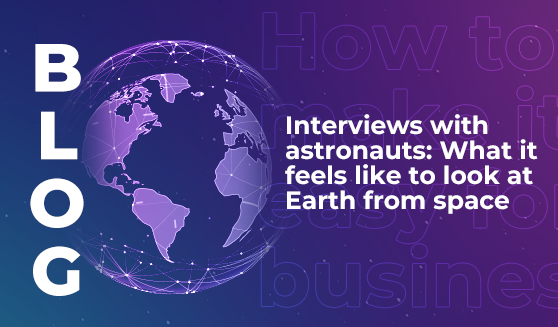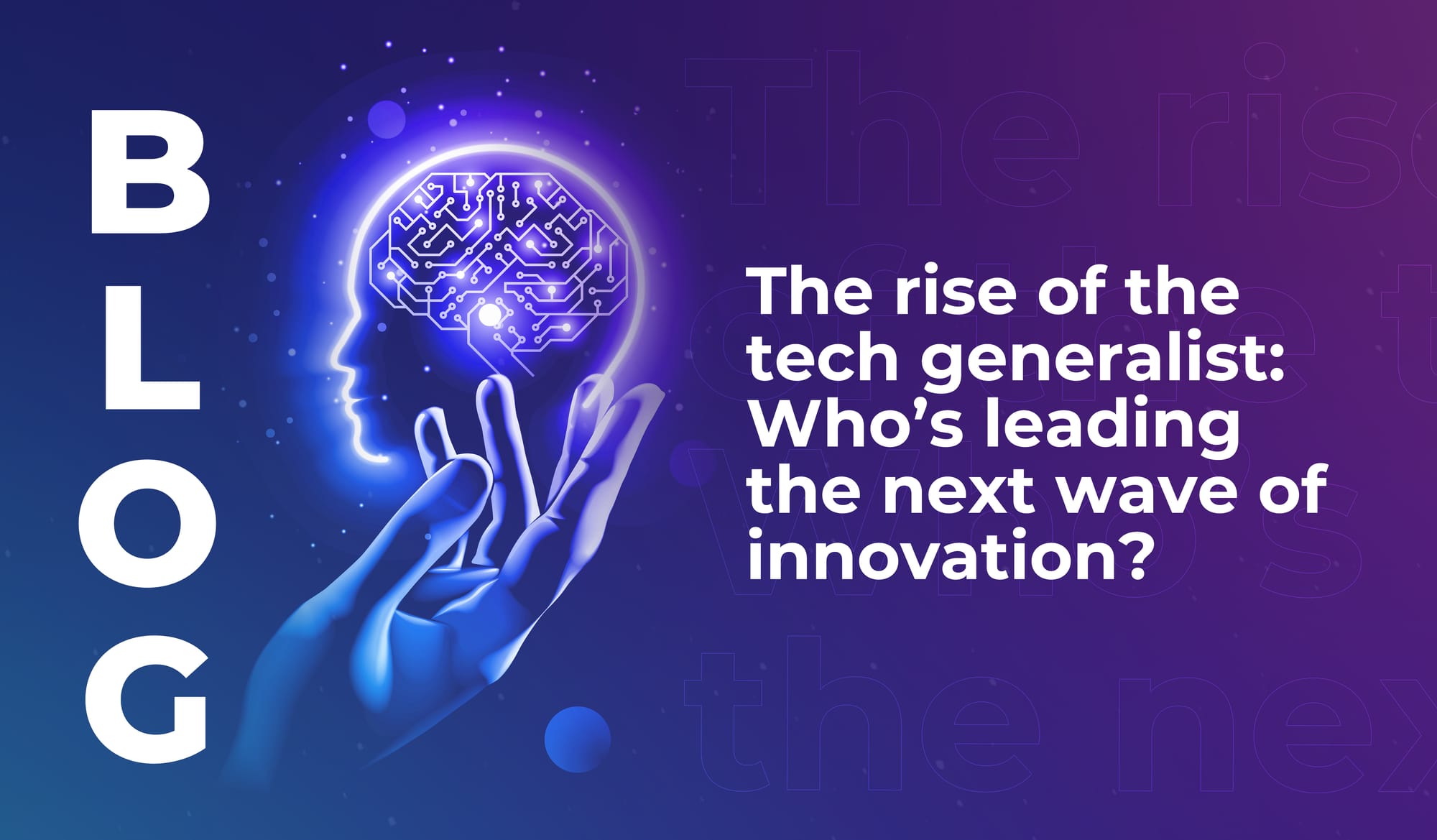
Tech careers with impact: The power of investing
If you’ve ever thought about becoming a tech investor, read this – learn why investors are the quiet force shaping the future of the industry.


We want to tell you a secret: we love talking to people who’ve been into space.
OK, maybe it’s not so secret. If you’ve been reading the LEAP blog for a while, you’ve probably read a few of our interviews with astronauts. Every time we have the opportunity to speak to someone who’s flown beyond our planet’s atmosphere and floated around out there in the dark, we jump at the chance. Because astronauts invariably bring a perspective to any conversation that makes us see the world and human life in a different light.
It’s a known phenomenon that when you go into space, you experience a mindset shift. In 1987, space philosopher Frank White coined the term ‘the overview effect’ in his book of the same name; describing the way that seeing the world from space can emphasise the beauty and fragility of life, and change the way you think.
So we’ve gathered together a few of our favourite astronaut interviews (some of our own, and some from other publications) into one inspiring, perspective-bending blog post for you.
In 2021, 90-year-old Canadian actor William Shatner was invited by Jeff Bezos for a ride into space on a Blue Origin rocket.
When he got back to Earth, he said to Bezos:
“What you have given me is the most profound experience I can imagine. I’m so filled with emotion about what just happened. I just, it’s extraordinary, extraordinary. I hope I never recover from this. I hope that I can maintain what I feel now. I don’t want to lose it.”
And at LEAP 2023, Dr. Sian Proctor (Geoscientist, Astronaut, Artist, Space2inspire) described the moment when she experience Earth light for the first time:
“Our whole capsule is flooded with light as the forward hatch opens and reveals Earth. And for me, capturing this moment of awe and wonder and beauty that we felt in that moment…and when I think about my time in space…it’s the moment of Earth light. Feeling the Earth’s light upon my face was transformative.”
For his 1987 book, Frank White interviewed 29 astronauts – and it was their first-hand accounts that led him to an understanding of the overview effect, and how transformative it can be. He was certain that it wasn’t just the experience of looking at our home planet from a different angle, but also the conditions of that experience which create such a deep impact.
“The fact that this perspective happens while the person is in zero gravity is an integral part of the experience,” he told Universe.
LEAP 2024 speaker Jane Poynter (Co-Founder and Co-CEO at Space Perspective) spent two years living in Biosphere 2 – a 1.27 hectare Earth system science research facility in Oracle, Arizona. She led the design of the agriculture systems there, as a member of the first crew to execute a mission in the facility.
When we interviewed her for the blog, she said:
“During my time there, I had a visceral connection with the world I was living in – I could feel the edges, breathe the oxygen supplied by the plants. At one point, I and the rest of the crew turned orange from eating so many sweet potatoes.”
And later, she learned that her experience was similar to those of astronauts who have gone to space. “Many of them return with an entirely different perspective on our planet and our place within it,” she said. And she felt the same; adding,
“Astronauts often return from missions with a fire inside them; many get involved in environmental and societal causes. Often referred to as the overview effect, we call this the Space Perspective. And we think it can change the world and create a better future for our planet.”
For Phnam Bagley (Space Architect at Nonfiction Design), taking your imagination beyond your everyday and travelling (whether with your body, or only in your mind) to new worlds and future times is critical for developing new ideas and novel solutions to important problems.
“When you don’t think about the future, you tend to answer the same questions with the same solutions,” she said. “The ability to travel in space and time in your mind, uncover the possibilities and understand how we are evolving as societies is primordial to true innovation.”
We think this is the deepest value that comes from the overview effect: not just seeing the world from somewhere else, but feeling with your whole self that life is precious, and that there are infinite possibilities for protecting and nurturing it.
Not everyone needs to go to space. But everyone needs experiences that allow them to see things differently – and technology’s capacity to provide those experiences is one of the (many) reasons why tech is changing the world.

If you’ve ever thought about becoming a tech investor, read this – learn why investors are the quiet force shaping the future of the industry.

Tech generalists will enable emerging technologies to integrate across industries and societies in meaningful ways. We still need specialists – but we also need big-picture people.

Discover three tech sectors facing a talent shortage this year. Could you find your ideal role in a high-demand sector like cybersecurity, cloud computing, or artificial intelligence?

If you’ve ever thought about becoming a tech investor, read this – learn why investors are the quiet force shaping the future of the industry.

Tech generalists will enable emerging technologies to integrate across industries and societies in meaningful ways. We still need specialists – but we also need big-picture people.

Discover three tech sectors facing a talent shortage this year. Could you find your ideal role in a high-demand sector like cybersecurity, cloud computing, or artificial intelligence?